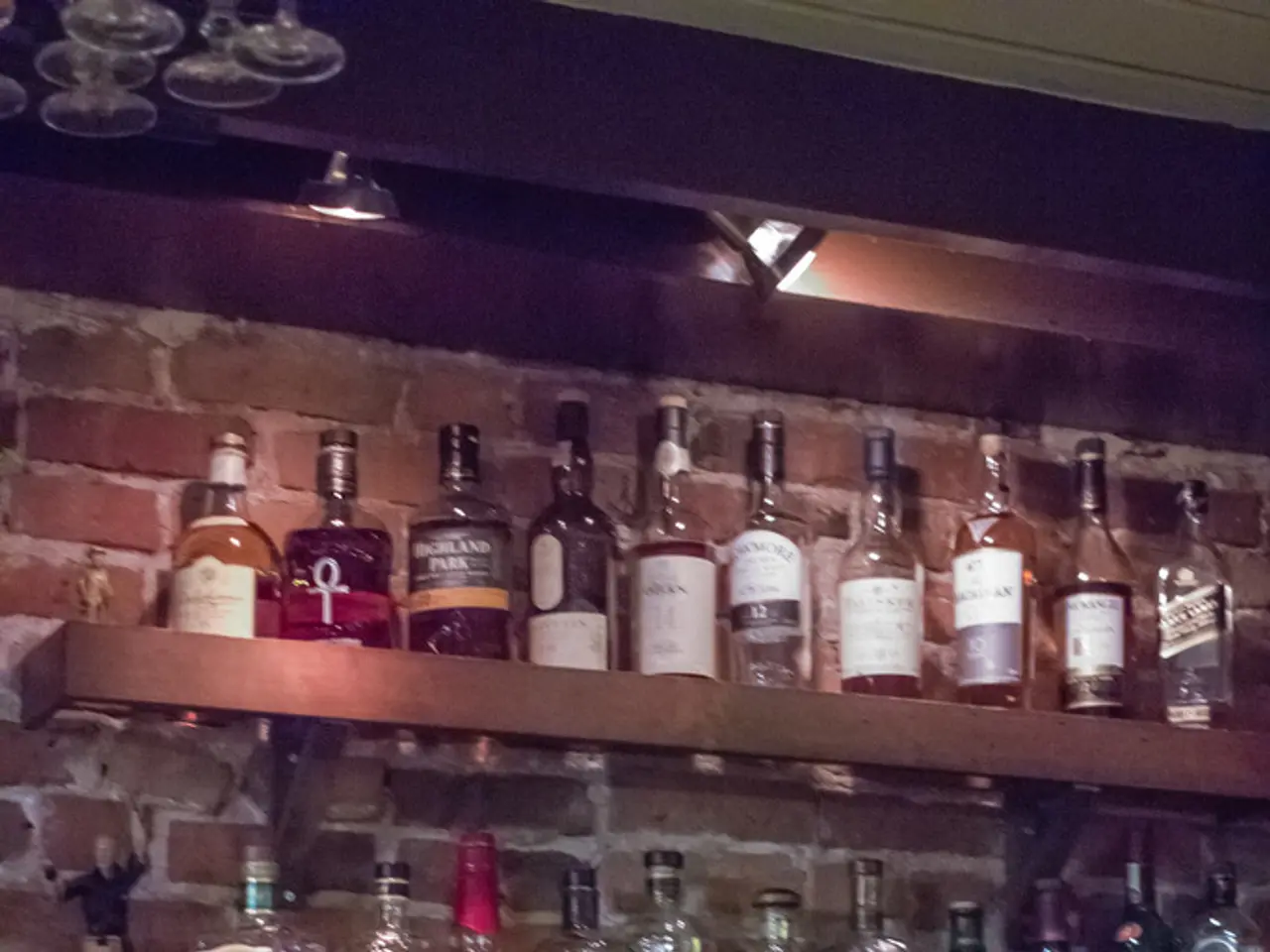Vineyard's verdant gamble unfolds
In the picturesque vineyards of Quebec, Canada, Vignoble de la Bauge is making waves in the world of sustainable wine production. The vineyard, certified organic since 2022 and Regenerative Organic Alliance (ROA) certified in October 2024, is a testament to the power of regenerative agriculture.
Simon Naud, who took over the family farm in 1996 after his parents planted the first vines in 1986, has been a pioneer in this movement. His journey began with a switch to organic farming, driven by concerns for human and environmental health. This transition led him to discover regenerative agriculture, a practice that aims to improve soil vitality, restore ecosystem diversity, and strengthen communities.
At Vignoble de la Bauge, the key aspects of regenerative viticulture are evident. Soil health restoration, biodiversity enhancement, minimal chemical inputs, carbon sequestration, water management, and holistic farm management are all integral parts of the vineyard's operations.
The presence of 42 sheep in the vineyard plays a crucial role in this holistic approach. They perform weeding, grass cutting, and soil fertilization, eliminating up to 15 tractor passes per season between each vine row. Moreover, they collaborate in trunk pruning by eating unnecessary shoots that are energy-consuming for the vine. This unique collaboration is possible because the fruits of Nordic varieties hang at a height of five to six feet, making them impossible for the sheep to reach.
The Nordic varieties, such as Frontenac, occupy 80% of the vineyard today. These varieties, created in the 1990s as a result of a hybridization program at the University of Minnesota, are more resistant to fungal diseases and pests, and they allow for high pruning. This resistance and adaptability contribute to the vineyard's resilience to climate change, enabling it to withstand droughts, floods, and temperature variations.
The benefits of this approach are manifold. Improved vine health and grape quality, environmental sustainability, resilience to climate change, economic viability, and a positive brand identity are all outcomes of Vignoble de la Bauge's commitment to regenerative agriculture. Consumers increasingly value sustainably and regeneratively produced wines, adding market appeal.
For Simon Naud, regenerative agriculture is more than just a farming practice; it's a beautiful group that resonates with his values and propels them further. As he walks between lush vines where lambs graze, it's clear that his vineyard is not just a place of wine production, but a thriving, regenerative ecosystem.
- Simon Naud's vineyard, Vignoble de la Bauge, demonstrates the integration of regenerative agriculture in environmental-science and lifestyle, focused on food-and-drink, with an emphasis on sustainability.
- The implementation of regenerative viticulture, including soil health restoration, biodiversity enhancement, and minimal chemical inputs, aligns with the vineyard's commitment to climate-change mitigation and the scientific principles of environmental-science.
- The educational aspects of Vignoble de la Bauge extend beyond vine cultivation, providing insights into home-and-garden regenerative practices, such as the role of sheep in weed control and soil fertilization.
- By embracing regenerative agriculture, Simon Naud fosters an environment that not only enhances the quality of food-and-drink but also supports self-development, offering opportunities for personal growth and cultural awareness.



